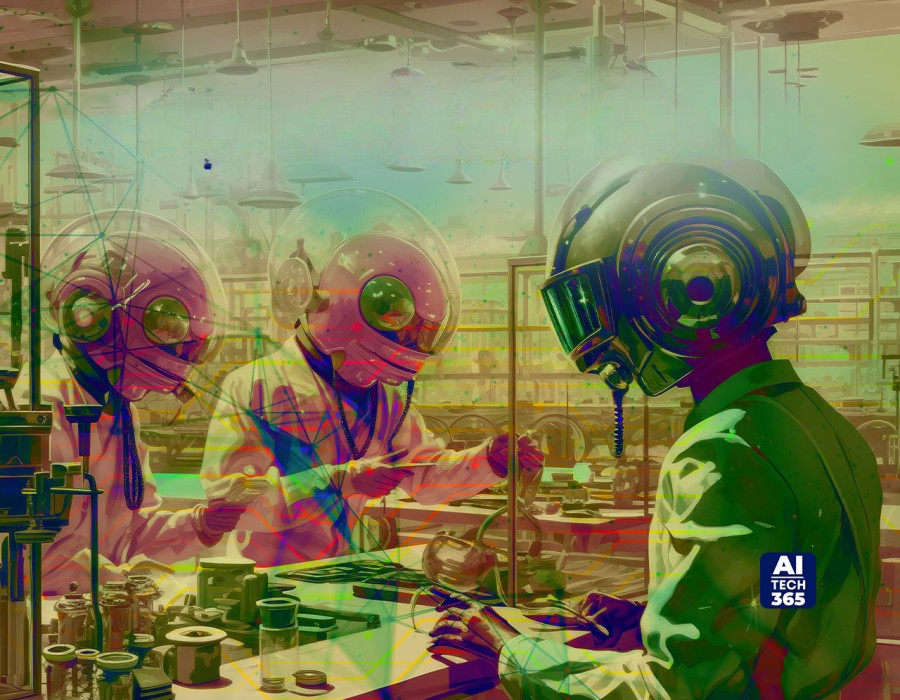Manufacturing has continually evolved, from assembly lines to automated robotics, as the industry pursues ways to enhance productivity and reduce costs. Today, amidst rapid technological advancements, generative AI emerges as a transformative tool in manufacturing.
The industry is under immense pressure due to supply chain disruptions, which are estimated to reduce company earnings by 45% over the next decade. Additionally, labor shortages impact more than 54% of manufacturers, further stressing profitability and productivity. These challenges have created a critical need for innovation, and generative AI offers a powerful solution, capable of refining maintenance processes and identifying issues in real time.
What is Generative AI?
Generative AI represents a branch of artificial intelligence focused on creating new data that reflects patterns of the data it has been trained on. By producing unique yet realistic outputs, generative AI can craft text, images, music, and even designs that resemble human work.
Its versatility spans industries such as natural language processing, image creation, music, and pharmaceuticals, forming the foundation of chatbots like ChatGPT and GPT-4. In manufacturing, generative AI is making waves by automating complex processes, streamlining production, and enabling predictive insights.
Advantages of Generative AI in Manufacturing
Generative AI brings transformative benefits that can elevate productivity, innovation, and operational efficiency in manufacturing:
- Enhanced Efficiency
- By automating design and quality assurance stages, generative AI accelerates production timelines, improving overall operational efficiency.
- Cost Reduction
- Predictive maintenance and quality control powered by generative AI help prevent machinery breakdowns and reduce defects, lowering costs associated with downtime and inefficiency.
- Innovation Boost
- AI-driven generative design explores diverse design options within specific constraints, paving the way for innovative solutions and products.
- Improved Decision-Making
- Generative AI analyzes large data sets to provide insights that refine decision-making in areas like production scheduling, inventory, and supply chain management.
- Minimized Downtime
- Predictive maintenance leverages AI to foresee potential machinery issues, enabling manufacturers to address these proactively, preventing sudden failures and production delays.
Top Use Cases of Generative AI in Manufacturing
Generative AI’s adaptability makes it invaluable across various manufacturing processes, from predictive maintenance to supply chain optimization. Here are some key applications transforming the sector:
- Machine Event Monitoring Predictive maintenance, supported by generative AI, detects potential equipment issues before they occur. According to Deloitte, it boosts productivity by 25%, reduces breakdowns by 70%, and cuts maintenance costs by 25%. By analyzing machinery data, generative AI enhances maintenance processes, minimizes downtime, and improves resource efficiency. It even suggests resolution strategies for identified issues, making maintenance more accessible for both current staff and new hires.
- Automated Customer Service Customer expectations for post-sales support are high. Salesforce reports that 80% of business buyers expect real-time responses, and 82% prioritize personalized support. Manufacturers are increasingly adopting generative AI to automate responses for common inquiries—such as product support, parts replacement, and service scheduling—enhancing the speed and quality of customer service.
- Document Search and Information Synthesis Manufacturing manuals and product documentation can be complex, making it difficult for technicians to find repair information. Generative AI efficiently sifts through large document archives, extracting essential information for sales teams and technicians. By presenting repair steps clearly, it accelerates repair times and generates customer quotes more effectively, reducing manual data cross-referencing.
- Product Catalog Discovery Generative AI aids manufacturers in aligning product features with customer demands. AI-powered sales tools use historical sales data, inventory details, and customer preferences to generate suggestions. These recommendations are refined through machine learning and real-time feedback, delivering valuable insights that enhance purchasing decisions. According to Boston Consulting Group, implementing generative AI has led to a 21% improvement in efficiency for an automotive provider, with an ROI within one to three years.
- Supply Chain Advisor Supply chain disruptions have pushed manufacturers to adopt sustainable and ethical sourcing practices. Generative AI acts as a supply chain consultant, offering visibility into complex supply networks and recommending optimal suppliers based on specific criteria like material availability, delivery schedules, and sustainability indicators. By analyzing contracts and legal documents, it provides instant insights to improve decision-making and supply chain efficiency.
The Future of Generative AI in Manufacturing
Generative AI is set to revolutionize manufacturing, unlocking efficiencies and driving innovation. The technology’s ability to process vast datasets and generate actionable insights positions it as a critical asset for the future. As generative AI applications continue to expand, the industry can expect significant benefits.
However, implementing generative AI isn’t without challenges. Risks include potential bias from poorly trained algorithms and the displacement of human workers due to automation. Nonetheless, with effective strategies, these risks can be mitigated, ensuring that generative AI benefits the industry while addressing ethical and operational concerns.
Generative AI holds transformative potential for manufacturing, offering real-time insights, improved processes, and the capacity for groundbreaking innovation. By embracing generative AI, manufacturers can lead the way in technological advancement and maintain a competitive edge.





Comments